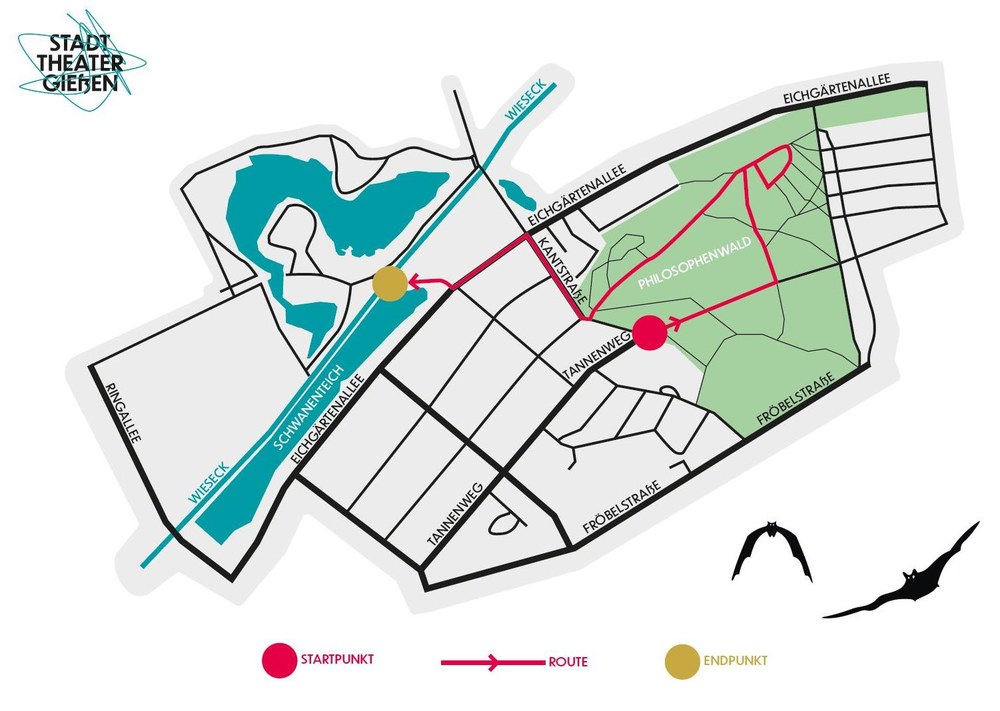May 6, 2024 | City Walk with Dr. Markus Dietz (Das Parlament für die Zukunft)
What would cities be without urban nature, and how can cities be developed in the future to accommodate both humans and wildlife? Following up upon this question, the Panel, in collaboration with Stadttheater Giessen, organizes a city walk through the Philosophenwald and the Wieseck-Aue with biologist Dr. Markus Dietz.
- https://www.uni-giessen.de/en/faculties/planetarythinking/mediacollection/collection/citywalk
- May 6, 2024 | City Walk with Dr. Markus Dietz (Das Parlament für die Zukunft)
- 2024-05-06T19:00:00+02:00
- 2024-05-06T23:59:59+02:00
- What would cities be without urban nature, and how can cities be developed in the future to accommodate both humans and wildlife? Following up upon this question, the Panel, in collaboration with Stadttheater Giessen, organizes a city walk through the Philosophenwald and the Wieseck-Aue with biologist Dr. Markus Dietz.
May 06, 2024 from 07:00 (Europe/Berlin / UTC200)
Starting point: entrance of Philosophenwald, Tannenweg
In cooperation with Stadttheater Giessen
A City Walk with Dr. Markus Die
 |
Cities are growing worldwide, increasingly displacing natural landscapes and habitats of wildlife. At the same time, cities are also becoming more frequently inhabited by wild animals. The science of urban ecology closely examines the interactions between animals and plants, humans, and their shared habitats. Through a city walk through the Philosophenwald and the Wieseck-Aue, one can experience, through the example of bats and birds, the biodiversity that such green islands can harbor and how they enrich our living environment. How do bats orient themselves at night, where do they live, and what adaptations do birds show when living in urban habitats? What would cities be without urban nature, and how can cities be developed in the future to accommodate both humans and wildlife? Many such questions can be discussed during the city walk. Above all, we want to get to know the living environment of bats and birds a little better. Dr. Markus Dietz is a conservation biologist specializing in forest and animal ecology. He studied in Giessen and has been studying the behavior of native bats for over 30 years. In 1992, he discovered the Philosophenwald and the Wieseck-Aue as habitats for rare bats and has since kept a close eye on the forest. In 2003, he founded the Institute for Animal Ecology and Nature Education and has been working with 20 employees for decades on regional, national, and international conservation projects. The communication of scientific knowledge, the fascination of native nature, but also its fragility, is a particular concern for him. Tickets can be purchased through Webshop Stadttheater Gießen |
